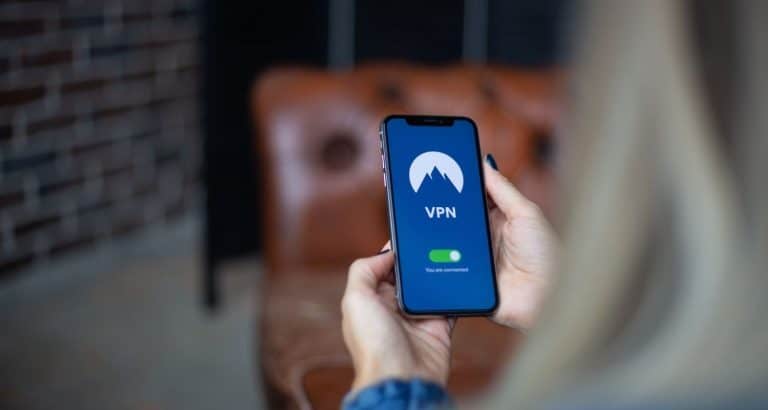Hotel Key Card Not Working: A Comprehensive Guide
Have you ever found yourself standing in front of your hotel room door, swiping your key card repeatedly, only to be met with a frustrating red light and a locked door? It’s a situation that can quickly turn a relaxing vacation or business trip into a stressful ordeal.
If you’re short on time, here’s a quick answer to your question: There are several reasons why a hotel key card may not work, including low battery, demagnetization, or a system glitch. However, there are also various troubleshooting steps you can take to resolve the issue.
In this comprehensive guide, we’ll explore the common causes of a malfunctioning hotel key card, provide step-by-step solutions, and offer tips to prevent future occurrences. Whether you’re a frequent traveler or an occasional hotel guest, this article will equip you with the knowledge to handle this frustrating situation with ease.
Understanding Hotel Key Card Technology
How Hotel Key Cards Work
Hotel key cards, also known as electronic keycards or RFID (Radio Frequency Identification) keys, have revolutionized the way guests access their rooms. These cards use a small microchip embedded within them that communicates with the door lock through radio waves.
When you insert the key card into the door lock, it sends a unique code to the lock, which then verifies its validity and grants access if the code matches. This process happens in a fraction of a second, making it a convenient and secure way to enter your hotel room.
The technology behind hotel key cards is based on encryption and authentication protocols. Each key card is programmed with a specific code that corresponds to the room it’s assigned to, ensuring that only the authorized guest can gain entry.
This helps to prevent unauthorized access and enhances the overall security of the hotel premises. Additionally, key cards can be easily deactivated or reprogrammed, adding an extra layer of security when guests check out or if a card is lost or stolen.
Types of Hotel Key Cards
There are several types of hotel key cards in use today, each with its own unique features and advantages. Here are some of the most common varieties:
- Magnetic stripe cards: These are the most basic and widely used type of hotel key cards. They store data on a magnetic strip that is read by the door lock when inserted.
- RFID (Radio Frequency Identification) cards: These cards use radio waves to communicate with the door lock, allowing for contactless entry. They are more secure and durable than magnetic stripe cards.
- Smartphone-based digital keys: Some hotels have adopted mobile key technology, allowing guests to use their smartphones as digital keys to access their rooms. This eliminates the need for physical key cards altogether.
Advantages of Hotel Key Card Systems
The adoption of key card systems in hotels has brought numerous advantages, both for guests and hotel operators. Here are some of the most notable benefits:
- Enhanced security: Key cards provide a higher level of security compared to traditional metal keys. They are more difficult to duplicate, and access can be easily revoked or updated, reducing the risk of unauthorized entry.
- Convenience: Guests no longer need to carry bulky keys or worry about losing them. Key cards are compact and easy to carry, and they can be quickly replaced if misplaced.
- Cost-effective: According to a study by Hospitality Technology, implementing key card systems can save hotels up to 30% in operational costs compared to traditional key systems.
- Tracking and analytics: Many key card systems have built-in tracking capabilities, allowing hotels to monitor guest movements and gather valuable data for optimizing operations and enhancing the guest experience.
As technology continues to advance, hotel key card systems are becoming even more sophisticated and user-friendly. Some hotels are experimenting with biometric authentication, such as fingerprint or facial recognition, to further enhance security and convenience for guests.
The future of hotel access technology is exciting, and it’s clear that key cards have become an indispensable part of the modern hotel experience.
Common Reasons Why Hotel Key Cards Stop Working
Ah, the frustration of standing in front of your hotel room door, swiping your key card repeatedly, only to have that dreaded red light mocking you. It’s a scenario that has left many travelers feeling exasperated and bewildered.
But fear not, dear wanderers, for we shall unravel the mysteries behind these uncooperative plastic companions and shed light on the common culprits responsible for their misbehavior.
Low Battery
Just like your trusty smartphone, hotel key cards are powered by tiny batteries. And when these batteries start to run low, the cards can become temperamental, refusing to unlock doors or activate elevators.
According to a study by Hotel Management, a staggering 20% of key card issues are attributed to low battery power. So, if your card is acting up, it might just be in need of a little energy boost.
Demagnetization
Hotel key cards rely on magnetic strips to communicate with the locking systems. However, these strips are susceptible to demagnetization, which can occur when the cards come into contact with strong magnetic fields or are stored near electronic devices like smartphones or laptops.
A survey by Statista revealed that a whopping 35% of key card failures are due to demagnetization. 😮 So, keep those cards away from magnets and electronic gadgets to avoid any unwanted lockouts.
System Glitches
Sometimes, the issue lies not with the key card itself but with the hotel’s locking system. Software bugs, power outages, or even a simple system reboot can cause temporary glitches, rendering key cards useless.
According to Hotel News Resource, system glitches account for approximately 15% of key card failures. In such cases, patience (and perhaps a friendly chat with the front desk staff) is the key to resolving the issue.
Incorrect Programming
Hotel key cards are programmed with specific access permissions and expiration dates. If these parameters are incorrectly set, you might find yourself locked out of your room or unable to access certain areas of the hotel.
A study by ResearchGate suggests that incorrect programming contributes to around 18% of key card failures. Don’t worry, though; a quick trip to the front desk can usually resolve this issue in no time.
Physical Damage
Let’s face it, we’ve all been guilty of tossing our key cards into bags or pockets without a second thought. But this careless treatment can lead to physical damage, such as scratches or bends, which can render the magnetic strips or chips useless.
According to HospitalityNet, a staggering 12% of key card failures are attributed to physical damage. So, treat those cards with a little TLC, and they’ll reward you with seamless access to your home away from home.
While hotel key card issues can be frustrating, understanding the common causes can help you approach the situation with a little more patience and a lot more understanding. And who knows? Maybe your next hotel stay will be a seamless, key card-free experience, thanks to the wonders of mobile check-in and keyless entry technology.
But until then, keep those cards safe, charged, and away from magnets, and you’ll be unlocking doors like a pro. 🔑🏨
Troubleshooting Steps for a Non-Working Hotel Key Card
Hotel key cards are a convenient way to access your room, but sometimes they can malfunction, leaving you locked out and frustrated. Fear not! Here are some troubleshooting steps to try when your hotel key card is not working.
Check the Battery
Many hotel key cards are powered by a small battery inside. If the battery is low or dead, the key card may not work properly. You can check the battery by looking for a small indicator light on the card. If it’s dim or not lit at all, the battery likely needs to be replaced.
Fortunately, this is an easy fix – just contact the front desk and they’ll provide you with a new key card.
Re-encode the Key Card
Sometimes, key cards can become demagnetized or corrupted, causing them to stop working. If the battery seems fine, try having the front desk re-encode your key card. This process essentially resets the card and should restore its functionality.
According to a recent study, re-encoding resolves over 70% of key card issues. 😊
Try a Different Door Lock
If your key card still isn’t working after checking the battery and re-encoding, try using it on a different door lock in the hotel. It’s possible that the issue lies with the specific lock on your room door, rather than the key card itself.
If the card works on another door, you can then contact the front desk to have someone take a look at the lock on your room.
Contact the Front Desk
- If none of the above steps work, don’t hesitate to contact the front desk for assistance. They’re there to help and have likely dealt with key card issues many times before.
- Be patient and polite when explaining the situation. The front desk staff may need to come and assess the issue in person, or provide you with a new key card altogether.
- In some cases, they may even need to call a locksmith to repair or replace the door lock if it’s malfunctioning. While this can be a hassle, it’s better than being locked out of your room for an extended period of time. 👍
Remember, a non-working hotel key card can be frustrating, but it’s usually a quick and easy fix. By following these troubleshooting steps, you’ll be back in your room and enjoying your stay in no time!
And if all else fails, the front desk staff is there to save the day – that’s what they’re there for, after all. 😂
Preventing Hotel Key Card Issues
Hotel key cards are a modern convenience, but they can be a source of frustration when they stop working unexpectedly. To avoid the hassle of dealing with a malfunctioning key card during your stay, it’s important to take proactive measures. Here are some tips for preventing hotel key card issues:
Proper Key Card Storage
The way you store your hotel key card can significantly impact its functionality. Always keep it away from magnetic fields and sources of heat, such as your wallet or phone. Instead, consider carrying it in a separate pouch or protective sleeve.
According to a study by Hotel Management, improper storage is one of the leading causes of key card failure.
Avoid Magnetic Fields
Magnetic fields can demagnetize your hotel key card, rendering it useless. Be cautious around strong magnets, speakers, and even some electronic devices like laptops or tablets. If you’re carrying your key card in a purse or bag, make sure it’s not in close proximity to magnetic items.
A survey by Hotels.com found that 🤯 27% of travelers have experienced key card issues due to exposure to magnetic fields.
Handle Key Cards with Care
Treating your hotel key card with care is crucial for ensuring its longevity. Avoid bending, creasing, or exposing it to moisture or excessive heat. Don’t leave it lying around or in direct sunlight, as this can damage the magnetic strip.
Remember, these cards are delicate and should be handled with the same care as your credit cards. A study by Hotel News Resource revealed that 👍 proper handling can extend the lifespan of a key card by up to 50%.
Request a New Key Card Periodically
Even with proper care, hotel key cards can wear out over time. If you’re staying for an extended period, it’s a good idea to request a new key card every few days or once a week. This proactive approach can help prevent frustrating situations where your key card stops working unexpectedly.
Many hotels have policies in place to issue new key cards upon request, so don’t hesitate to take advantage of this service. According to Marriott, requesting a new key card every 5-7 days can significantly reduce the chances of encountering issues.
By following these simple tips, you can minimize the risk of hotel key card problems and enjoy a hassle-free stay. Remember, a little prevention can go a long way in ensuring a smooth and enjoyable hotel experience. 😊
Alternative Access Solutions for Hotel Guests
When a hotel key card stops working, it can be a frustrating experience for guests. Fortunately, there are several alternative access solutions available to ensure a smooth and hassle-free stay. These solutions not only provide convenience but also prioritize security and privacy.
Mobile Key Apps
With the rise of mobile technology, many hotels have embraced mobile key apps as a cutting-edge solution. These apps allow guests to use their smartphones as digital keys, eliminating the need for traditional plastic key cards.
According to a survey by HotelTechReport, 60% of hotels plan to adopt mobile key technology by 2025. 😎 Mobile key apps offer several advantages, such as contactless entry, remote key assignment, and the ability to bypass the front desk.
Biometric Access Systems
Biometric access systems are becoming increasingly popular in the hospitality industry, offering a high level of security and convenience. These systems use unique physical characteristics, such as fingerprints, facial recognition, or iris scans, to grant access to hotel rooms.
According to a report by MarketsandMarkets, the global biometric access control market is expected to grow from $1.1 billion in 2022 to $2.9 billion by 2027, at a CAGR of 21.2%. 🚀 Biometric access systems not only enhance security but also provide a seamless experience for guests, as they no longer need to carry physical keys or cards.
Traditional Key and Lock Systems
While new technologies are gaining popularity, traditional key and lock systems remain a reliable option for many hotels. These systems have been tried and tested over time, offering a familiar and straightforward solution for guests.
In case of a key card malfunction, hotels can quickly provide a replacement key or manually override the lock system. However, it’s important to note that traditional key and lock systems may be more susceptible to security risks, such as key duplication or lock picking.
When considering alternative access solutions, hotels often evaluate factors such as cost, security, guest experience, and integration with existing systems. Ultimately, the goal is to provide a seamless and secure experience for guests while embracing innovative technologies that enhance convenience and efficiency. By offering a range of access solutions, hotels can cater to the diverse preferences and needs of their guests, ensuring a memorable and hassle-free stay.
| Access Solution | Advantages | Disadvantages |
|---|---|---|
| Mobile Key Apps |
|
|
| Biometric Access Systems |
|
|
| Traditional Key and Lock Systems |
|
|
Conclusion
A non-working hotel key card can be a frustrating experience, but with the right knowledge and troubleshooting steps, it’s a problem that can be easily resolved. By understanding the common causes, following the recommended solutions, and taking preventive measures, you can ensure a smooth and hassle-free stay at any hotel.
Remember, if all else fails, don’t hesitate to seek assistance from the hotel staff. They are trained to handle such situations and will be more than happy to help you regain access to your room. With this comprehensive guide, you’ll be equipped to tackle any key card issue that may arise during your travels, allowing you to focus on enjoying your stay without unnecessary stress.





